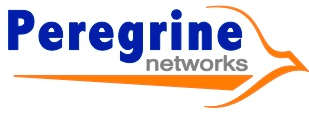Peregrine Networks’s wireless backhaul links employ a wide range of Advanced Encryption Standards (AES) that have been designed to meet the National Institute of Standards and Technology (NIST) – Computer Security Division
Peregrine Networks’s wireless network is a carrier class wireless network designed to provide robust and reliable last miles services to users while implementing a set of security and encryption schemes to protect user data.
Every customer is individually provisioned on a point-to-point wireless circuit that is only capable of communications between the customer’s radio and Peregrine Networks base station. Each customer radio has to authorize with the base station before it’s capable of receiving or transmitting information. This authorization mechanism eliminates any rogue devices from being able to receive our signals.
Additionally Peregrine Networks’s wireless backhaul links employ a wide range of Advanced Encryption Standards (AES) that have been designed to meet the National Institute of Standards and Technology (NIST) – Computer Security Division FIPS-197 Standards (NIST FIPS-197). Further information on this standard can be at csrc.nist.gov/publications/PubsFIPS.html
To further enhance security, Peregrine Networks Wireless employs directional antennas throughout its network to ensure that wireless signals are only received at the locations where they are intended for further mitigating any remote chance of interception.
Because of these advanced security features, Peregrine Networks wireless network is actually more secure than a standard T1, DSL, or cable connection. What many people fail to realize is that copper lines strung up on telephone poles still radiate energy, which can easily be intercepted. Plus T1/DS3, DSL, and cable services don’t provide signal encryption unlike Peregrine Networks’s wireless signals that implement a highly effective encryption scheme.
Still, it’s important to recognize that Internet access over any technology (T1, DSL, Cable, and fixed wireless) has potential security implications so Peregrine Networks always recommends the use of security technologies such as encryption based VPN’s and Firewalls when connecting to the Internet.
